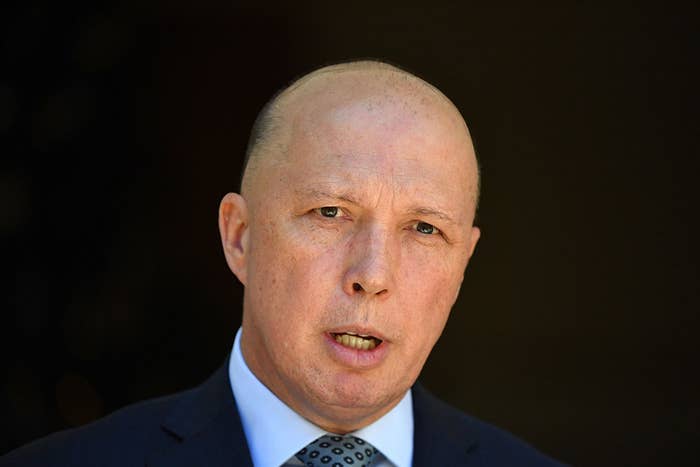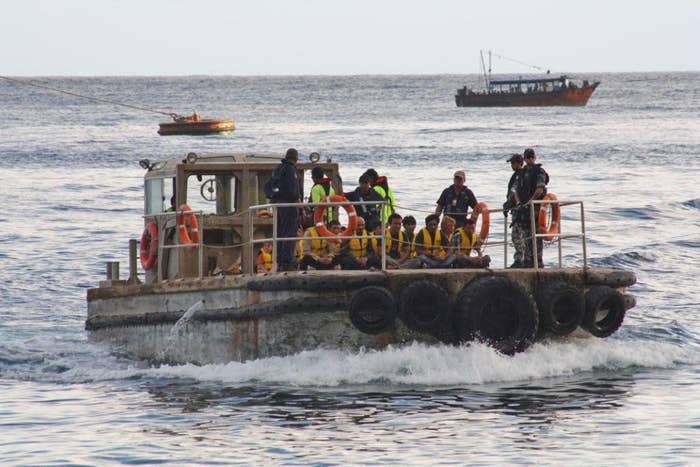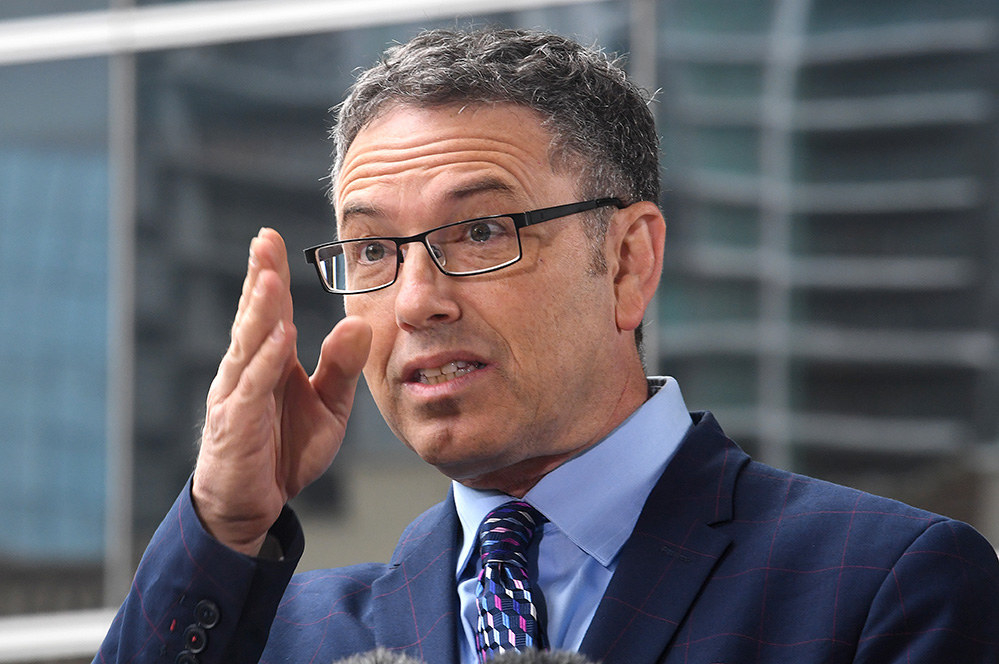
A 36-year-old Tamil refugee and torture survivor who is legally blind, and has schizophrenia and dementia, has been held in immigration detention for an entire decade by Australia.
And he remains locked up, despite a judge deciding on Christmas Eve that his situation was so absurd it could be likened to Joseph Heller’s famous novel Catch-22.
The Dec. 24 decision could also have huge ramifications for thousands of other refugees in Australia who have been denied visas and indefinitely detained under the controversial “character” test.
Deva (a pseudonym) arrived by boat on Australia’s Christmas Island in March 2010, after fleeing persecution in Sri Lanka, where he had been tortured by the army. He feared further torture or a forced disappearance.
Australia accepted Deva’s refugee claim later that year, but in 2011 the Australian Security Intelligence Organisation (ASIO) spy agency flagged him as a security risk, a decision he could not challenge because it was based on secret evidence and reasons.
When ASIO changed its mind in 2016 and downgraded the rating, he was not released.
As the decade — Trump, Brexit, #MeToo — passed by, Deva was “caught up in an endless cycle of visa applications and security assessments while in detention, where his health, both physical and mental, is deteriorating”, according to the United Nations Working Group on Arbitrary Detention.
A health condition has left Deva legally blind, and he also lives with an acquired brain injury and serious mental health conditions, including schizophrenia, post-traumatic stress disorder and dementia.
Back in 2015, he applied for a temporary protection visa. In July 2019 the application was dismissed by home affairs minister Peter Dutton — with no real explanation as to why it took so long — on the basis Deva failed the character test and his release would pose an “unacceptable risk” to the Australian community due to his serious mental health issues. Deva has never been convicted of a crime.

But Dutton’s decision was overturned in a scathing judgement from Justice Steven Rares on Dec. 24, 2019. Rares condemned Dutton’s refusal to issue Deva a visa, and also found that the controversial character provisions in section 501 of the Migration Act do not apply to refugees.
The latter finding is hugely significant news for a growing group of people who are detained indefinitely in Australia — unable to get a visa under section 501, but unable to be sent back to their home countries due to Australia’s obligations under the Refugee Convention.
Deva had argued in his 2015 application that if he were not given a visa he would either be indefinitely detained or sent back to Sri Lanka where he would face death. Dutton disagreed, arguing in his reasons for rejecting the application that there was a chance Deva could get a different visa later on. (Under the Migration Act, Dutton himself would have to personally decide to give Deva that visa.)
Rares compared this reasoning to Catch-22, suggesting it was absurd for Dutton to say he might issue Deva a visa in the future when he had just found that the risk Deva posed to the Australian community was too great to release him.
Dutton’s decision was unreasonable and therefore invalid, Rares found.
Dutton’s “perfunctory” and “cursory” reasoning lacked “any active intellectual engagement” with the consequences of his decision to refuse the visa — that Deva would either be detained indefinitely or sent back to Sri Lanka to face his potential murder.
The reasons appeared “to be an attempt to lay the groundwork for keeping [Deva] in indefinite immigration detention”, he said.
Rares also found Australia’s section 501 test cannot apply to refugees or other people who qualify for protection.
This law allows the government to refuse to issue a visa to anyone on wide-ranging grounds — including that there is a risk they will commit a crime if allowed into Australia, if they are a suspected gang member or if they have been sentenced to prison for at least 12 months.
But to get a refugee visa, a person needs to clear a second, narrower test. A 2014 change to the Migration Act inserted a provision saying that a person can’t be found to be a refugee if they have committed certain serious crimes or if the minister reasonably believes they are a security danger.
It made no sense for refugees to have to clear two separate character tests when applying for a visa, Rares found, and 501 should not apply.
Deva’s lawyer, Alison Battisson of Human Rights for All, described the decision as “incredibly significant”.
“It’s huge...it affects thousands and thousands of people,” she told BuzzFeed News, adding that Rares’ interpretation reflects Australia’s obligations under the Refugee Convention.
“If I was a refugee in detention and also affected by 501, I’d be saying it doesn’t apply to me anymore, let me out.”

Human rights lawyer George Newhouse said the decision would have a “profound effect” on refugees and other people entitled to Australia’s protection who were facing deportation.
Having a different character test for refugees “makes perfect sense when you consider that refugees may face physical harm or even death if they are returned to their homeland,” Newhouse told BuzzFeed News. “Refugees have nowhere else to go,” Battisson said.
Both Battisson and Newhouse said the decision means the minister can’t have “two bites of the cherry” when deciding if a refugee can enter Australia.
Rares ordered Dutton to make a “prompt decision” on Deva’s visa application. Battisson said Dutton had not yet made a decision. Deva was moved from a Sydney detention centre to other accommodation on Jan. 6 but remains under guard. The government still has several weeks to notify Battisson of an appeal, and there is a strong chance the case will end up in the High Court.
Both the Working Group on Arbitrary Detention, which is overseen by the Human Rights Council, and Australia’s Human Rights Commission have found Deva’s detention is arbitrary and contrary to international law.
Battisson said that when she started working on indefinite detention cases five years ago, two to five years in detention was considered “outrageous”.
“Half a decade along, people are still there, and it’s very normal to see people there for seven or eight years,” she said.
Deva’s detention is among the longest. In the years since he was detained, Australia has changed its prime minister five times.
At the end of October 2019, over 22% of the 1,400 people in immigration detention had been held for longer than 730 days. The average period in detention was 496 days.
An August 2017 report by the Commonwealth Ombudsman found that 122 people had been detained for more than five years. Of those, 24 had been detained for six years or more, and the Ombudsman said there were “considerable barriers to them being released from detention”.
The Department of Home Affairs did not respond to a request for comment.
UPDATE
This post has been updated to clarify details of Deva's current detention.
